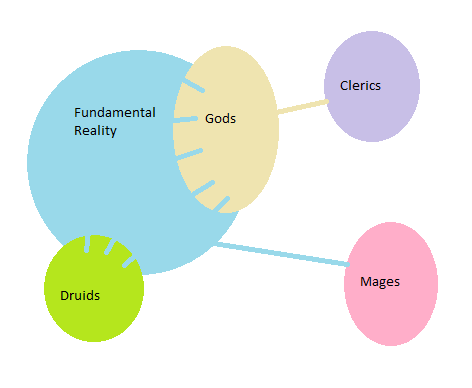waywardOne
Arcane
- Joined
- Aug 28, 2010
- Messages
- 2,318
Sorry, no discussion of this (yet). I'm looking for source material where ^ is the case, specifically in regard to divine vs arcane magic.





Sorry, no discussion of this (yet). I'm looking for source material where ^ is the case, specifically in regard to divine vs arcane magic.
Yeah, it's the dominant 'paradigm' in their fucked up mage cosmology where everything is determined by what the most of humanity believes, the 'consensus'. Magic as a 'science' that is.
Also, are you referring to magic as a branch of knowledge wherein further progress can be made through the scientific method or are you using "science" to mean being studied as a respected field of knowledge? Not much for the former IRL besides ESP experiments which either miss the point of magic or disprove it depending on who you ask but tons for the latter.
Thanks for the help so far. To clarify, I'm in the midst of modding an RPG according to 2 functions: what the engine will let me do, and how I would run the game as a PnP DM. For the most part so far, I haven't had to do anything major with the mechanics until this when I was confounded by an issue I should've noticed decades ago: In a game where clerics and mages are distinct classes, what is the justification for clerics not being able to cast any spell a mage can? Despite playing many different games over my lifetime, most cosmologies are either One-Size-Fits-All or inconsistent and arbitrary.
It's such a jumble right now so I can't go into details that don't exist yet.
In a game where clerics and mages are distinct classes, what is the justification for clerics not being able to cast any spell a mage can? Despite playing many different games over my lifetime, most cosmologies are either One-Size-Fits-All or inconsistent and arbitrary.


![Glory to Codexia! [2012] Codex 2012](/forums/smiles/campaign_tags/campaign_slushfund2012.png)

Not to be a dick, but any talk of "real world" magic systems is way off the mark, primarily due to (a) gods not existing and (b) magic not being real. Interesting to read, at least.
You can still talk of "real world" as in historical magic systems that can be used as a basis for creating something convincing and come from the time when scientific and magical thinking weren't yet separated.Not to be a dick, but any talk of "real world" magic systems is way off the mark, primarily due to (a) gods not existing and (b) magic not being real. Interesting to read, at least.
Why so desperate to incorporate real world? It's a game; we can make up whatever we want.
No more relativism, thx.








